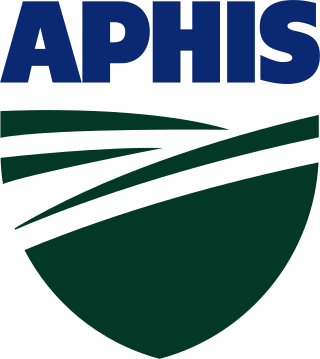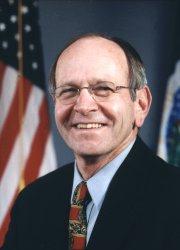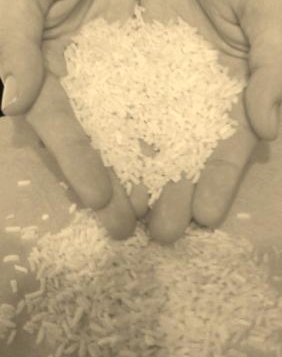
The United States secretary of agriculture is the head of the United States Department of Agriculture. The position carries similar responsibilities to those of agriculture ministers in other governments

The United States Department of Agriculture (USDA) is an executive department of the United States federal government that aims to meet the needs of commercial farming and livestock food production, promotes agricultural trade and production, works to assure food safety, protects natural resources, fosters rural communities and works to end hunger in the United States and internationally. It is headed by the secretary of agriculture, who reports directly to the president of the United States and is a member of the president's Cabinet. The current secretary is Tom Vilsack, who has served since February 24, 2021.

The Animal and Plant Health Inspection Service (APHIS) is an agency of the United States Department of Agriculture (USDA) based in Riverdale, Maryland responsible for protecting animal health, animal welfare, and plant health. APHIS is the lead agency for collaboration with other agencies to protect U.S. agriculture from invasive pests and diseases. APHIS's PPQ is the National Plant Protection Organization for the U.S., and the agency's head of veterinary services/veterinary Deputy Administrator is the Chief Veterinary Officer of the United States.

The Economic Research Service (ERS) is a component of the United States Department of Agriculture (USDA) and a principal agency of the Federal Statistical System of the United States. It provides information and research on agriculture and economics.

The National Organic Program (NOP) is the federal regulatory framework in the United States of America governing organic food. It is also the name of the United States Department of Agriculture (USDA) Agricultural Marketing Service (AMS) program responsible for administering and enforcing the regulatory framework. The core mission of the NOP is to protect the integrity of the USDA organic seal. The seal is used for products adhering to USDA standards that contain at least 95% organic ingredients.

William Thomas Hawks, known as Bill Hawks, is an American politician, former civil servant, agricultural businessman, and founder and CEO of AgWorks Solutions, LLC.
The Foreign Agricultural Service (FAS) is the foreign affairs agency with primary responsibility for the United States Department of Agriculture's (USDA) overseas programs – market development, international trade agreements and negotiations, and the collection of statistics and market information. It also administers the USDA's export credit guarantee and food aid programs and helps increase income and food availability in developing nations by mobilizing expertise for agriculturally led economic growth. The FAS mission statement reads, "Linking U.S. agriculture to the world to enhance export opportunities and global food security," and its motto is "Linking U.S. Agriculture to the World."
The Agricultural Marketing Service (AMS) is an agency of the United States Department of Agriculture; it maintains programs in five commodity areas: cotton and tobacco; dairy; fruit and vegetable; livestock and seed; and poultry. These programs provide testing, standardization, grading and market news services for those commodities, and oversee marketing agreements and orders, administer research and promotion programs, and purchase commodities for federal food programs. The AMS enforces certain federal laws such as the Perishable Agricultural Commodities Act and the Federal Seed Act. The AMS budget is $1.2 billion. It is headquartered in the Jamie L. Whitten Building in Washington, D.C.

The Grain Inspection, Packers and Stockyards Administration (GIPSA) was an agency of the United States Department of Agriculture that facilitates the marketing of livestock, poultry, meat, cereals, oilseeds, and related agricultural products, and promotes fair and competitive trading practices for the overall benefit of consumers and American agriculture. GIPSA was formed in 1994 through the joining of the Federal Grain Inspection Service and the Packers and Stockyards Administration.

Food policy is the area of public policy concerning how food is produced, processed, distributed, purchased, or provided. Food policies are designed to influence the operation of the food and agriculture system balanced with ensuring human health needs. This often includes decision-making around production and processing techniques, marketing, availability, utilization, and consumption of food, in the interest of meeting or furthering social objectives. Food policy can be promulgated on any level, from local to global, and by a government agency, business, or organization. Food policymakers engage in activities such as regulation of food-related industries, establishing eligibility standards for food assistance programs for the poor, ensuring safety of the food supply, food labeling, and even the qualifications of a product to be considered organic.

The Under Secretary for Food Safety is a subcabinet position within the United States Department of Agriculture responsible for oversight of the policies and programs of the Food Safety and Inspection Service. The Under Secretary chairs the U.S. Codex Steering Committee, which provides guidance to U.S. delegations to the Codex Alimentarius Commission. The Food Safety and Inspection Service is responsible for ensuring the nation's supply of meat, poultry, and processed egg products are safe and correctly labeled and packaged.

The Under Secretary for Marketing and Regulatory Programs is a high-ranking position within the United States Department of Agriculture that supervises policy development and day-to-day operations of the Animal and Plant Health Inspection Service, the Agricultural Marketing Service, and the Grain Inspection, Packers, and Stockyards Administration. The three agencies were appropriated over $800 million by Congress in fiscal year 2004.
The Under Secretary for Research, Education, and Economics is a high-ranking official within the United States Department of Agriculture that provides leadership and oversight for the Agricultural Research Service, National Institute of Food and Agriculture, Economic Research Service, National Agricultural Library, National Agricultural Statistics Service.
Hallmark/Westland Meat Packing Company was a California-based meat packaging company. It was forced into bankruptcy due to costs from a meat recall and ensuing litigation.
President Chester A. Arthur signed the Animal Industry Act on May 29, 1884 creating the Bureau of Animal Industry (BAI), an organization that was established under the United States Department of Agriculture. It replaced the Veterinary Division that had been created by the Commissioner of Agriculture in 1883, which had taken over for the Treasury Cattle Commission, Department of Treasury.
The Virus-Serum-Toxin Act or VSTA was United States federal legislation designed to protect farmers and livestock raisers by regulating the quality of vaccines and point-of-care diagnostics for animals. Initially, the Virus-Serum-Toxin Act was created due to significant losses from unregulated manufacture and distribution of anti-hog cholera serum. The Act's intended purpose is to ensure the safe and efficient supply of animal vaccines and other biological products. The United States Secretary of Agriculture is responsible for licensing and regulating the manufacture, importation, and exportation of affected agents. The act and its applicable guidelines are managed by the Animal and Plant Health Inspection Service (APHIS) of the United States Department of Agriculture (USDA).
The University of Maryland College of Agriculture and Natural Resources is the agricultural and environmental sciences college of the University of Maryland and operates the Maryland Sea Grant College in cooperation with the University of Maryland Center for Environmental Science and the National Oceanic and Atmospheric Administration.

The Food Safety and Inspection Service (FSIS), an agency of the United States Department of Agriculture (USDA), is the public health regulatory agency responsible for ensuring that United States' commercial supply of meat, poultry, and egg products is safe, wholesome, and correctly labeled and packaged. The FSIS draws its authority from the Federal Meat Inspection Act of 1906, the Poultry Products Inspection Act of 1957 and the Egg Products Inspection Act of 1970.

Catherine E. O'Connor Woteki was the under secretary for United States Department of Agriculture's (USDA) Research, Education, and Economics (REE) mission area, as well as the department's chief scientist. Her responsibilities included oversight of the four agencies that comprise REE, the Agricultural Research Service (ARS), National Institute of Food and Agriculture (NIFA), Economic Research Service (ERS), and National Agricultural Statistics Service (NASS.) The National Agriculture Library and National Arboretum also fall under this mission area. Since 2021, she has been a member of the President’s Council of Advisors on Science and Technology (PCAST).

Basil Ivanhoe Gooden is an American governmental executive whose career has advanced equitable food systems, agriculture policy, public health, and community economic development in rural America. Gooden served as the 3rd Virginia Secretary of Agriculture and Forestry for the Commonwealth of Virginia in the cabinet of Governor Terry McAuliffe. He became the first Black American to serve in this position and during his tenure from September 2016 until January 2018, he was the only Black American Secretary of Agriculture in any state in the United States. In his capacity as Secretary, he provided strategic vision and leadership to two of Virginia's largest private industries, Agriculture and Forestry, with an annual economic impact of $91 billion on the Commonwealth.










